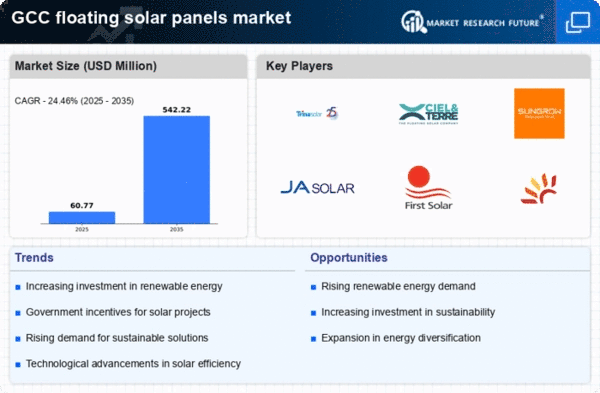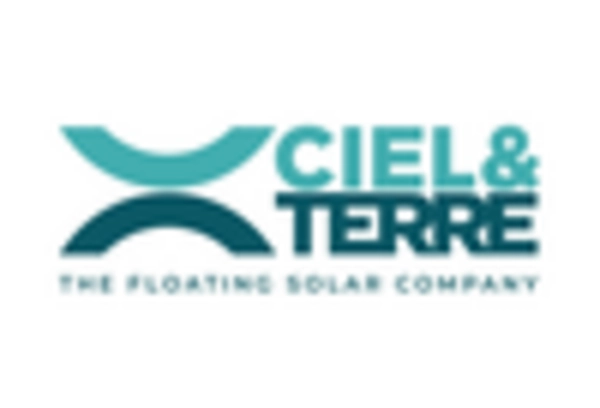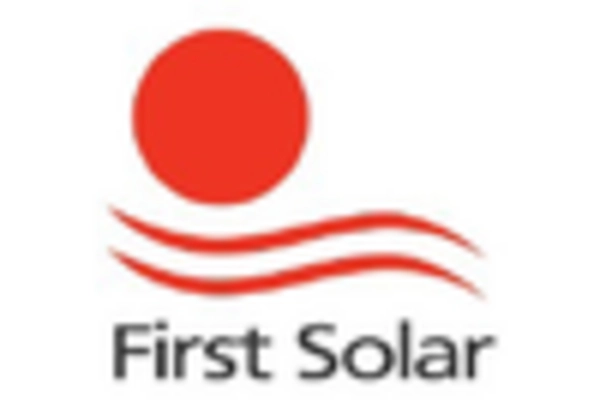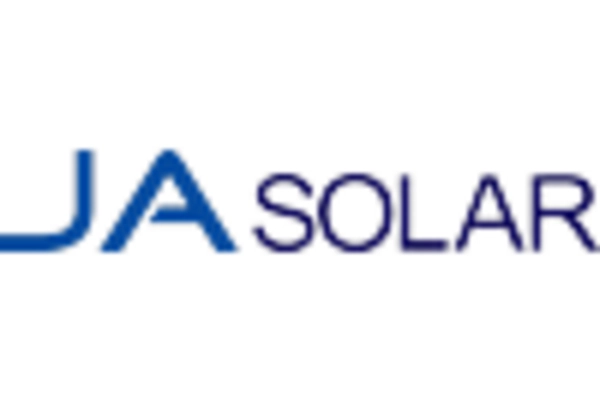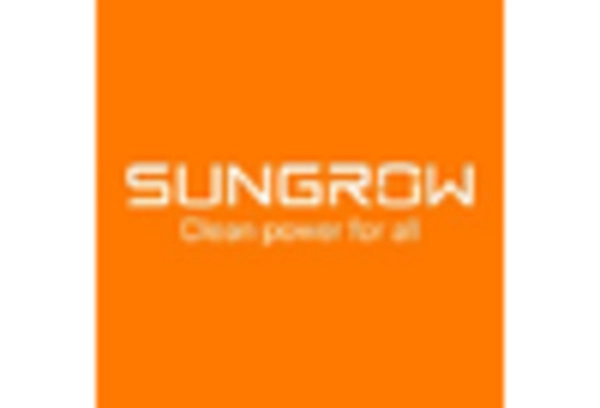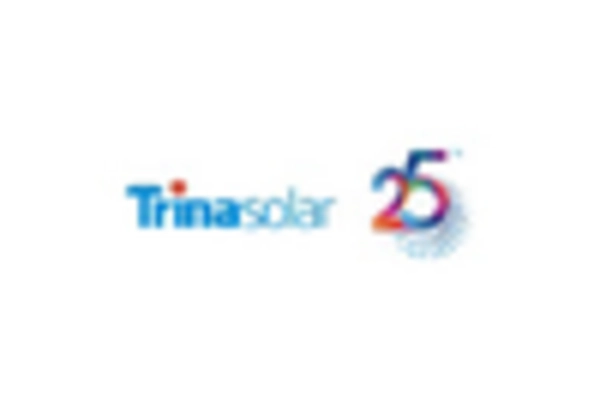Rising Energy Demand
The floating solar-panels market is experiencing a surge in demand due to the increasing energy requirements in the GCC region. As urbanization accelerates and populations grow, the need for sustainable energy solutions becomes more pressing. The GCC countries are investing heavily in renewable energy to diversify their energy sources and reduce reliance on fossil fuels. In 2025, the region's energy consumption is projected to rise by approximately 3.5% annually, creating a favorable environment for floating solar technologies. This market segment offers a unique solution by utilizing water bodies for solar energy generation, thereby minimizing land use conflicts. The floating solar panels market is likely to play a crucial role in meeting the rising energy demands. It will also contribute to the region's sustainability goals.
Water Resource Management
The floating solar-panels market is significantly influenced by the need for effective water resource management in the GCC. With water scarcity being a critical issue, utilizing water surfaces for solar energy generation presents a dual benefit. Floating solar panels can reduce evaporation rates from water bodies, thereby conserving precious water resources. In the GCC, where water evaporation can reach up to 80% in some areas, this technology could potentially save millions of liters annually. Furthermore, the integration of floating solar systems aligns with the region's strategic objectives to enhance water security while promoting renewable energy. This synergy between energy production and water conservation is likely to drive the floating solar-panels market forward.
Regulatory Support for Renewable Projects
Regulatory support for renewable energy projects in the GCC is propelling the floating solar panels market. Governments are implementing favorable policies and incentives to encourage the adoption of renewable technologies. In 2025, several GCC countries are expected to introduce streamlined permitting processes and financial incentives for floating solar projects. This regulatory environment is likely to reduce barriers to entry for developers and investors, fostering a more conducive atmosphere for project implementation. Furthermore, the alignment of national energy strategies with international climate commitments is expected to enhance the attractiveness of floating solar technologies. As a result, the floating solar-panels market is likely to benefit from this supportive regulatory framework.
Technological Innovations in Solar Energy
Ongoing technological innovations in solar energy systems are poised to drive growth in the floating solar panels market. Advances in photovoltaic technology, such as improved efficiency rates and reduced costs, are making floating solar panels more attractive to investors and developers. In 2025, the efficiency of solar panels is expected to reach around 25%, enhancing the viability of floating installations. Additionally, innovations in anchoring systems and materials are improving the durability and performance of floating solar arrays. These technological advancements are likely to lower the overall cost of floating solar projects, making them more competitive in the energy market. As a result, the floating solar-panels market is expected to expand as these innovations are adopted.
Investment in Renewable Energy Infrastructure
Substantial investments in renewable energy infrastructure across the GCC are benefiting the floating solar panels market. Governments are allocating significant budgets to enhance their renewable energy capabilities, with a target of achieving 50% of their energy mix from renewables by 2030. In 2025, investments in solar energy projects are expected to exceed $20 billion, with a notable portion directed towards floating solar technologies. This influx of capital is likely to accelerate the deployment of floating solar systems, as they offer a viable solution for harnessing solar energy in water-rich environments. The floating solar-panels market is thus positioned to capitalize on these investments, fostering growth and innovation in the sector.


